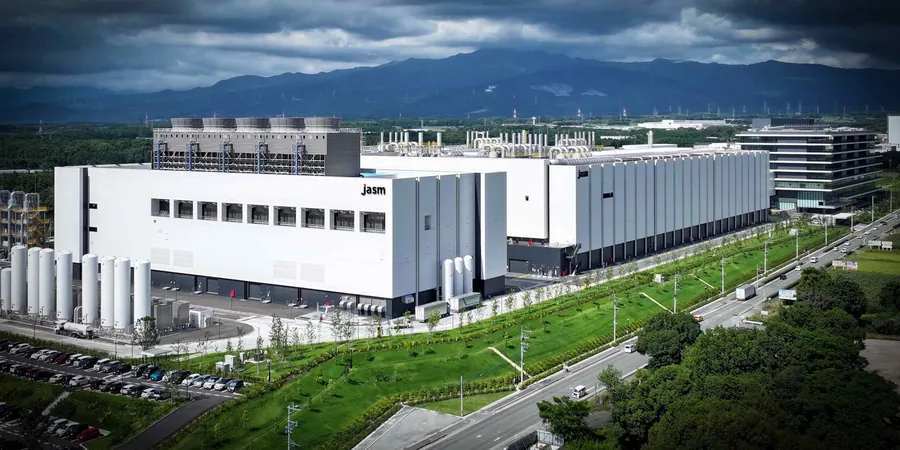
Major Chipmakers Hit the Brakes on Expansion Plans in Japan and Malaysia Amid Market Uncertainty
2025-03-28
Author: Yu
In a notable shift in strategy, leading semiconductor manufacturers, including Taiwan Semiconductor Manufacturing Company (TSMC) and Intel, have decided to decelerate their expansion efforts in Japan and Malaysia. This decision comes in response to declining demand for older chip models and growing uncertainties surrounding tariffs, as reported by Nikkei Asia.
The slowdown is not limited to TSMC and Intel; key chip packaging firms such as Advanced Semiconductor Engineering and Siliconware Precision Industries (SPIL) are also scaling back their expansion initiatives in Malaysia. Industry insiders have revealed that many chip suppliers are now adopting a "wait and see" approach regarding their investment strategies, pausing plans in light of the current market dynamics.
The semiconductor market, which has been facing fluctuating demand, particularly for legacy chips, is prompting these companies to reassess their growth tactics. Additionally, the ongoing global supply chain issues and geopolitical tensions that influence trade policies are further complicating the situation for chipmakers.
This cautious stance may have substantial implications for the global semiconductor industry, particularly as countries strategize to enhance their technological sovereignty. As companies recalibrate their priorities, the focus may shift toward research and development of cutting-edge chip technologies, potentially impacting the availability and production timelines of advanced chips in the near future.
Investors and industry analysts are now closely monitoring these developments, figuring out how such strategic pauses might affect supply chains, pricing, and the future landscape of the semiconductor sector as a whole.



 Brasil (PT)
Brasil (PT)
 Canada (EN)
Canada (EN)
 Chile (ES)
Chile (ES)
 Česko (CS)
Česko (CS)
 대한민국 (KO)
대한민국 (KO)
 España (ES)
España (ES)
 France (FR)
France (FR)
 Hong Kong (EN)
Hong Kong (EN)
 Italia (IT)
Italia (IT)
 日本 (JA)
日本 (JA)
 Magyarország (HU)
Magyarország (HU)
 Norge (NO)
Norge (NO)
 Polska (PL)
Polska (PL)
 Schweiz (DE)
Schweiz (DE)
 Singapore (EN)
Singapore (EN)
 Sverige (SV)
Sverige (SV)
 Suomi (FI)
Suomi (FI)
 Türkiye (TR)
Türkiye (TR)
 الإمارات العربية المتحدة (AR)
الإمارات العربية المتحدة (AR)